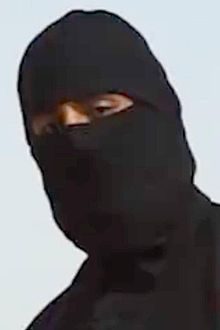Googling round the internet, checking out the idea of freelance war reporting, I came across an interesting piece in The Independent (by Tom Goulding, on 25 February 2013).
Gould wrote:
As the targets of government shelling, many have speculated their deaths were a warning to the outside world; scare tactics designed to drive foreign journalists out of a war that has so far claimed the lives of over 60,000 people.
Normally I would have expected the British press to show the various Syrian factions their proverbial longbowmen’s fingers. But no – all of a sudden the British media “care” about their on-site sources. And this isn’t just a Syrian issue. Gould went on:
Similar strategies deployed around the world saw 2012 become one of the deadliest years for journalists on record. Overall, journalist fatalities soared 13 per cent, with a total of 121 losing their lives in Syria, Pakistan, Mexico, Brazil, Iraq, the Philippines, and Somalia, described by the International Federation of Journalists as a “media killing field”.
So, it’s clear various combatants in various combat zones think killing journalists will make a difference. But they are clearly wrong. All they’ll do is alienate journalists as soon as their boots hit the ground. One thing all these various groups share is hope that international media will paint them as the “good guy”… or at least no worse than the other guy.
But the papers are getting antsy. Earlier in the month Press Gazette broke the news that the Sunday Times would no longer accept speculatively submitted pictures from the Syrian front because they did not “wish to encourage freelancers to take exceptional risks”. The Times, Guardian, Observer and Independent all have similar policies in place.
Photographer Rick Findler submitted work to the News International paper The Sunday Times, stuff he had shot in Aleppo, Syria. The paper’s foreign desk that “it looks like you have done some exceptional work” but “we have a policy of not taking copy from Syria as we believe the dangers of operating there are too great”. AKA: “Your work is great, but if you get hurt/die in a war zone it might make us look bad.”
And it isn’t just the Sunday Times pursuing this policy. The Times, Guardian, Observer and Independent have each revealed that they have similar policies. (No other newspapers asked had responded to Press Gazette’s enquiries at the time of publication. But it wouldn’t surprise me if every British paper with an international news desk was doing the same.)
And this creates a situation where no one knows what the hell is going on in war-torn regions. Some papers are lucky enough to have accredited “full-time” journos and/or togs in trouble zone. For instance, despite its freelance ban The Sunday Times still regularly devotes staff resources to reporting from Syria. So it isn’t a refusal to report – rather it is an apparent boycott of freelance reporters and photographers. It is, in the words of BBC World Affairs producer Stuart Hughes, an attempt to stem the rising tide of fresh-faced freelancers who are “skipping the unglamorous training grounds of local newsrooms” to report from hazardous locations in search of that coveted career break
So why are the papers doing this? Surely it’s useful to have a “man on the ground” who might produce scoops on big stories? It’s certainly dangerous work, especially for inexperienced journalists. They can end up as targets for kidnapping or murder. From the Independent:
In August 2012, American freelancer Austin Tice went missing in Syria. The 31-year-old, who recently received the George Polk Award for his work, is currently believed to be in the hands of Assad loyal forces. Clues to his whereabouts are scant; a YouTube video posted in September shows armed men leading a blindfolded Tice through mountainous terrain. While some experts have refuted the disturbing footage, the former marine’s disappearance proves that, regardless of age or experience, no reporter is safe in Syria.
In the words of Tom Goulding:
Young journalists are now caught between a rock and a hard place. Despite financial constraints, there will always be a place for good war journalism, and those freelancers determined enough to make it in the industry will find an audience regardless of boycott. It falls on editors to ensure this new generation receives the same advice and respect that all journalists are entitled to. Such courage does not deserve the cold shoulder.
Freelancers can be, and often are better experienced and equipped to get the story rather than a paper’s regulars. Are the papers really going to boycott running quality content? And are they really going to pretend that they’re saying “no” to the freelancers because they “care” about them? Good quality copy and images are good, whether or not the reporter has served a “tea boy” apprenticeship. Forget the CV, look at what you’ve been offered. Good is good, end of story.


 2015 has been a wonderful/horrific/insane/peaceful/war-ridden year. In other words, just another average year in the wondrous 21st century. Many thousands of people have been murdered by armies, national and terrorist. Most of the victims have been black and brown. But some were white, which has, as usual, caused the most outrage in the “developed” world.
2015 has been a wonderful/horrific/insane/peaceful/war-ridden year. In other words, just another average year in the wondrous 21st century. Many thousands of people have been murdered by armies, national and terrorist. Most of the victims have been black and brown. But some were white, which has, as usual, caused the most outrage in the “developed” world.




 Posted by Martin X
Posted by Martin X 

